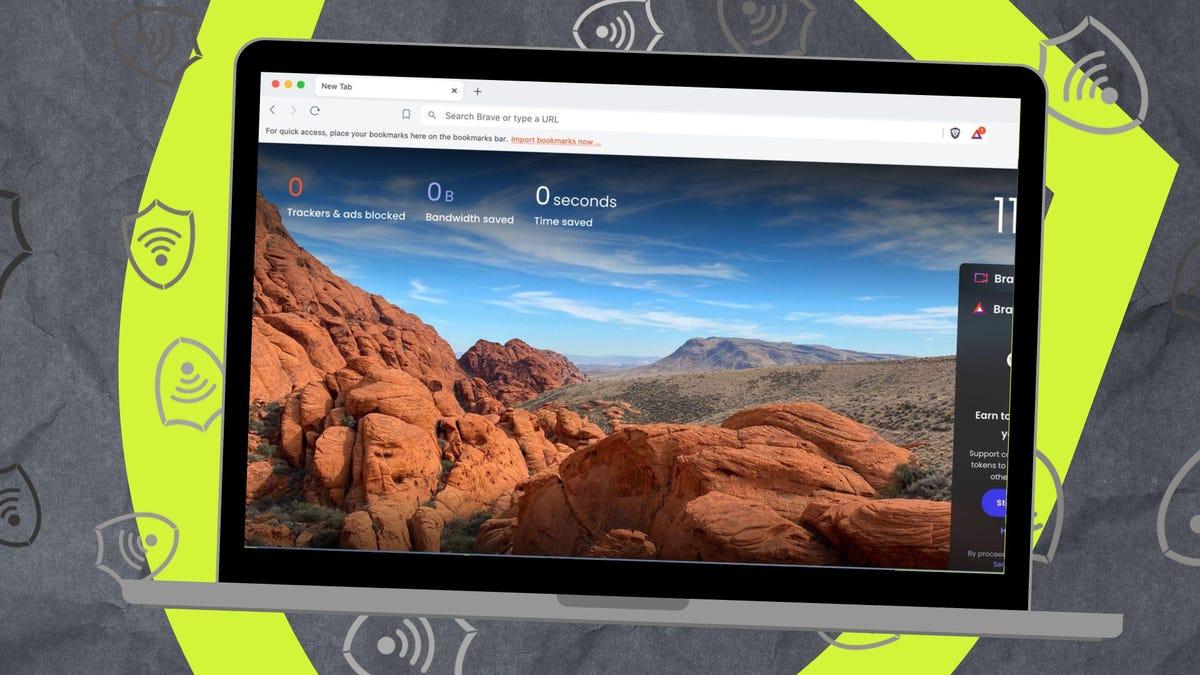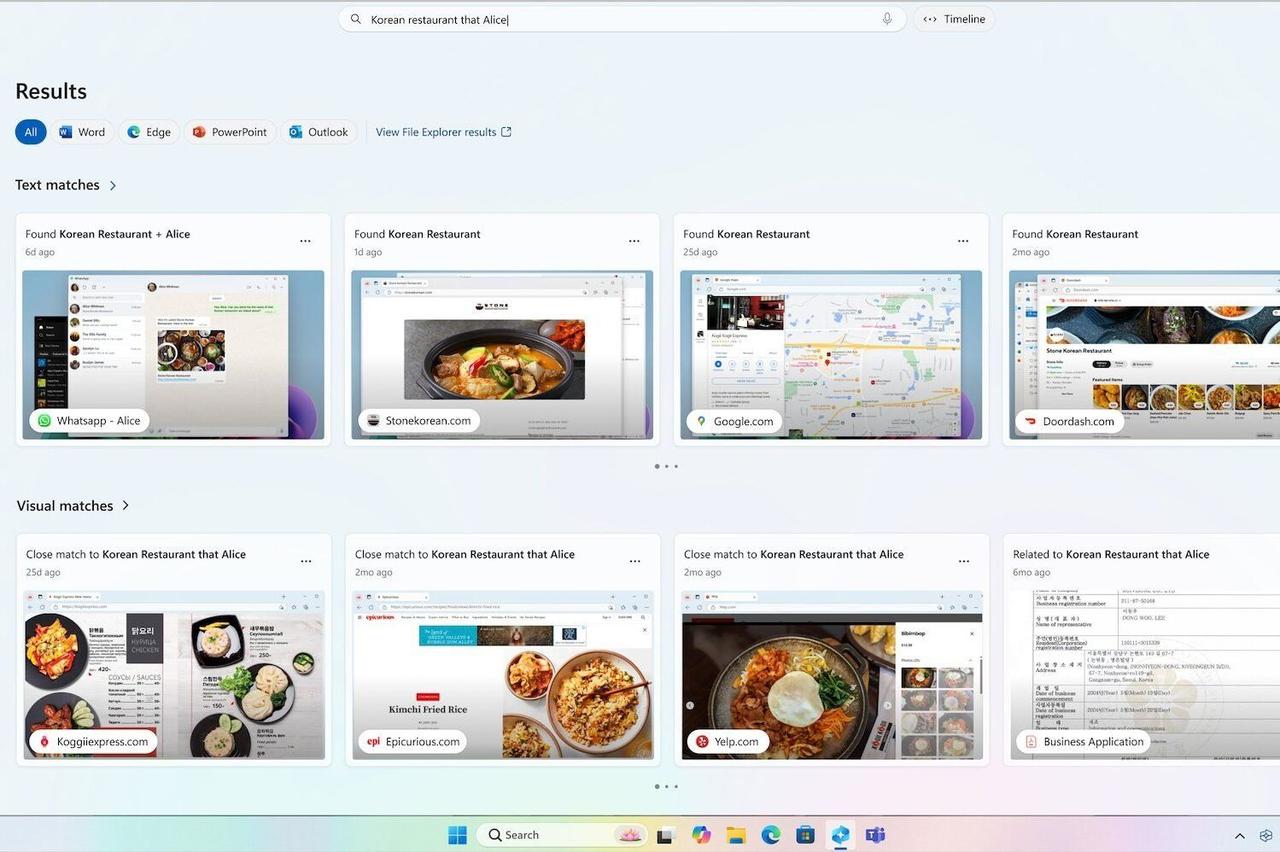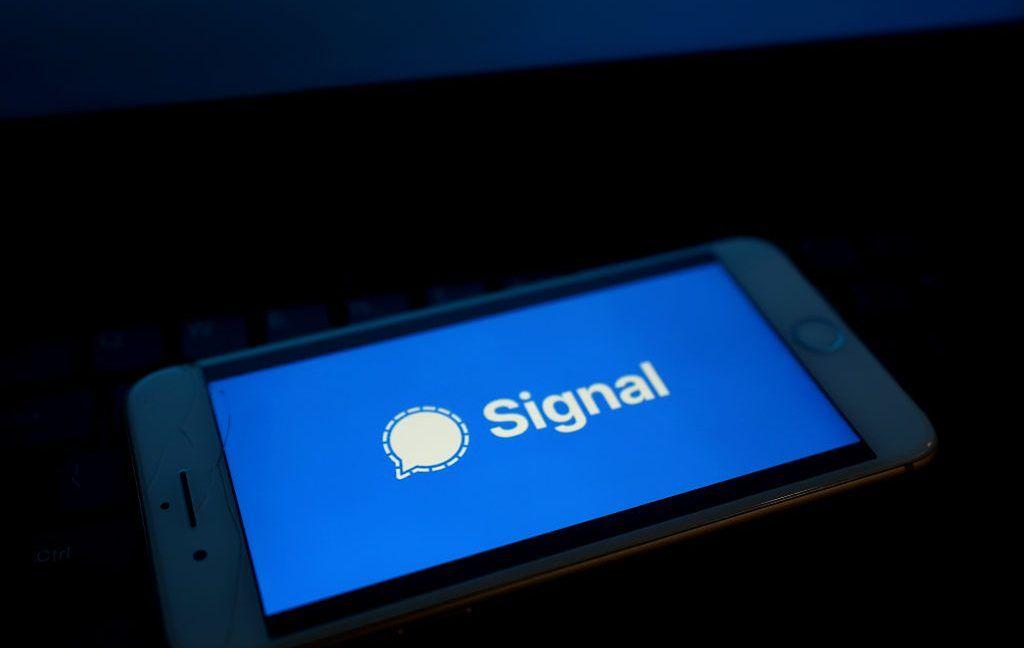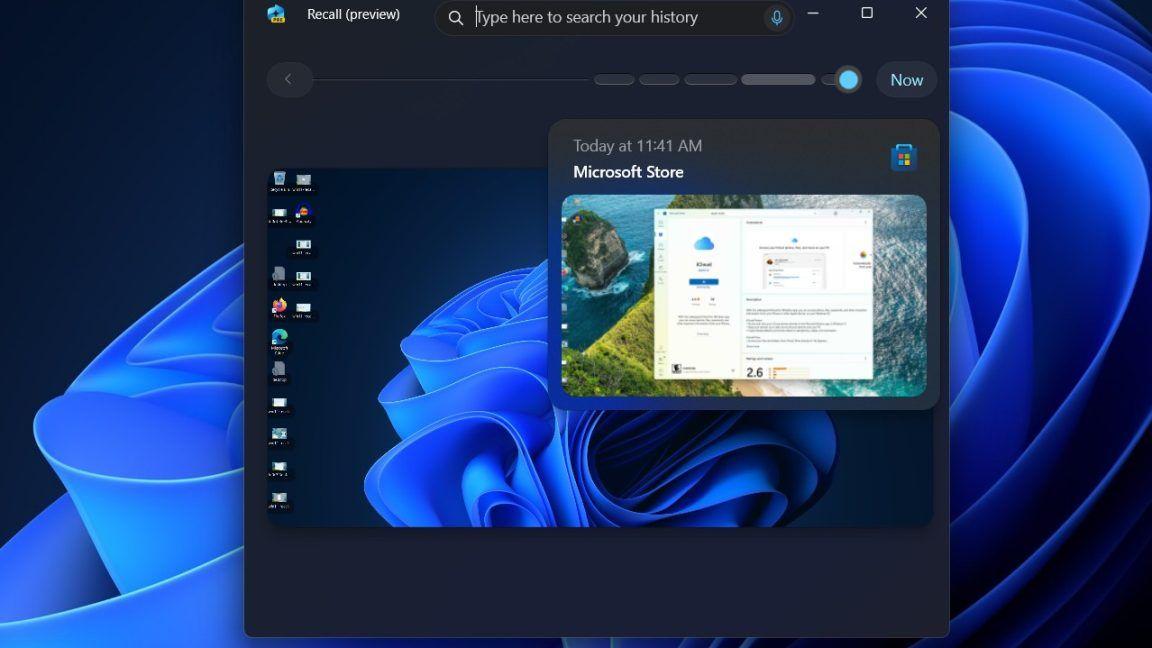Brave and AdGuard Join Signal in Blocking Microsoft's Controversial Recall Feature
4 Sources
4 Sources
[1]
Brave browser will block Microsoft Recall from tracking your online activity
Microsoft has been touting its Recall feature to certain Windows users, but the screen snooper is already persona non grata with one popular browser. Starting with version 1.81, Brave for Windows will block Recall from automatically taking screenshots of your browsing activity, according to an article posted on Brave's website. "Given Brave's focus on privacy-maximizing defaults and what is at stake here (your entire browsing history), we have proactively disabled Recall for all Brave tabs," Brave said in the article. "We think it's vital that your browsing activity on Brave does not accidentally end up in a persistent database, which is especially ripe for abuse in highly highly-privacy-sensitive cases such as intimate partner violence." Also: Microsoft's new AI agent can change Windows settings for you - here's how To pull off this trick, Brave is using Microsoft's own technology against it. In this case, Microsoft has stated that private browsing windows would not be included in Recall's snapshots. Extending that definition, Brave will tell the operating system that every tab is private, which will automatically prevent Recall from snooping on it. Brave provided further details on this sneaky workaround via a GitHub page. Though Recall will be disabled by default, Brave users will be able to turn it on should they wish. To do that, simply head to Settings in the browser, go to the section for "Privacy and security," and then turn off the switch to block Microsoft Recall. Currently available only on Copilot+ PCs, Recall has been in preview mode just for Windows insiders since April. On Tuesday, Microsoft officially rolled out the feature as a preview for all Copilot+ PC users via a major Windows 11 update. Initially announced in May 2024, the AI-powered Recall is a type of photographic memory for your computer. By taking a series of snapshots of your activity in Windows, the feature acts as an advanced search tool that lets you quickly find things you've done and seen. That certainly sounds helpful. But any tool that captures everything you see and do in Windows also sounds like a privacy risk. After learning how Recall works, Windows users expressed concerns, while some security experts called it a "privacy nightmare." Also: 5 great Chrome browser alternatives that put your privacy first Responding to the complaints, Microsoft has been busy fine-tuning Recall over the past year, giving people more control over its operation and settings. The company has also tried to assure Windows users that your snapshots aren't shared with it or with third parties and aren't used for training purposes. The snapshot data is encrypted, so only the user can access it, a process that requires Windows Hello authentication. Still, it's safe to say that privacy fears persist. "Recall is antithetical to Brave's goals as a privacy-first browser, and as such, we should disable Recall's ability to capture what the user does on Brave," a Brave software engineering said on the GitHub page. Brave isn't the first notable company to block Recall. In May, the folks behind messaging app Signal said that they would prevent Recall from capturing screenshots of your Signal chats on Windows. As with Brave, this option is enabled by default, though you can turn it off, albeit with a bit of difficulty. Also: Does your generative AI protect your privacy? New study ranks them best to worst Revealing that they were inspired by Signal's move, the Brave team took a slightly different route. Signal uses a flag to disable all screenshots, not just those from Recall. With the block enabled, you can't capture Signal's screens with any type of program. Brave's trick doesn't fall into the same trap. That means you can still grab the screens using any screen capture software as long as it's not Recall. Get the morning's top stories in your inbox each day with our Tech Today newsletter.
[2]
Microsoft's controversial Recall feature is now blocked by Brave and AdGuard
Tom Warren is a senior editor and author of Notepad, who has been covering all things Microsoft, PC, and tech for over 20 years. Microsoft's controversial Recall feature, that automatically screenshots nearly everything on a Copilot Plus PC, is meeting resistance from app developers. Signal kicked off a trend of blocking Recall earlier this year, with AdGuard and the Brave browser now also blocking the Windows AI feature. AdGuard calls Recall a "privacy concern" in a blog post outlining why it's blocking Microsoft's AI tool. "The very idea of background screen captures is unsettling," says AdGuard. "At any given moment, the system could snap a screenshot of a private chat window, an online form where you're entering your credit card, or simply something personal you didn't want saved." Brave admits it was "partly inspired by Signal's blocking of Recall," for its decision to also block Recall from accessing its browser. "We will disable it by default for Windows 11+ users, with a toggle to turn it back on for users who really want Recall," says Brave. Signal first started blocking Windows 11's Recall screenshots in May, while also highlighting that Microsoft "has launched Recall without granular settings for app developers that would enable Signal to easily protect privacy, which is a glaring omission that limits our choices." Signal's block involves using a DRM flag, which means it blocks any screenshot or accessibility tools from accessing the messaging app. Brave is able to offer access to screenshot and accessibility tools and still disable Recall, because Microsoft lets browser apps granularly disable Recall. "While it's heartening that Microsoft recognizes that Web browsers are especially privacy-sensitive applications, we hope they offer the same granular ability to turn off Recall to all privacy-minded application developers," says Brave.
[3]
Brave and AdGuard now block Microsoft Recall by default
The Brave web browser and the ad-blocker AdGuard that they are . For the uninitiated, Recall is an AI-powered tool that accompanies Windows 11 and it . It's pretty obvious why a privacy-minded web browser like Brave and an ad-blocker would make this move. AdGuard said the decision was made due to a "privacy concern," going on to say that "the very idea of background screen captures is unsettling." A blog post on the matter suggested that the tool could "snap a screenshot of a private chat window, an online form where you're entering your credit card or simply something personal you didn't want saved." Brave also cited privacy concerns, suggesting that a user's "entire browsing history" could be captured by the tool. "We think it's vital that your browsing activity on Brave does not accidentally end up in a persistent database, which is especially ripe for abuse in highly-privacy-sensitive cases," the company wrote in a blog post. The chat app Signal , urging "AI teams building systems like Recall" to think "through these implications more carefully in the future." Brave says it was "partly inspired" by Signal. AdGuard and Brave both offer toggles to bring Recall back into the mix. Microsoft's controversial tool lets people jump to whatever was previously on a screen. This includes web pages, images, documents, emails, chat threads or whatever else. It actually sounds like a pretty nifty productivity tool, despite the privacy concerns. It's available with some Copilot+ PCs.
[4]
Tech Companies Are Blocking Microsoft's Creepy 'Recall' Feature
Microsoft's much-maligned Recall feature, which automatically screenshots everything you do on your Copilot+ PC to create a "photographic memory," is not making many fans across the app developer community. According to a report from The Verge, ad blocker AdGuard and privacy-minded browser Brave have decided to block Recall and its prying eyes. Brave announced its plans to block Recall in a blog post published earlier this year, in which it tipped its cap to Signal, the encrypted messaging app that first revealed it would keep Recall from screencapping user activity back in May. Per Brave, Recall will be blocked by default starting with the release of version 1.81 of the browser. It'll offer a toggle for users who want to turn Recall back on and let it screencap their browsing activity, which definitely doesn't feel super vulnerable and invasive to have someone else see. AdGuard joined the chorus of blocking, announcing Friday in a blog post that it'll add a feature that will allow users to disable Recall. The feature, which will appear in version 7.21 of the app, seems to provide a system-wide block of Recall rather than just blinding its eyes from a single app. AdGuard offers a number of other settings to block other Windows tracking features, including the collection of telemetry data. While AdGuard's block is the most wide-ranging, Brave has managed to iterate on Signal's approach in a way that allows users to take their own screenshots while keeping Recall from taking its own snapshots. Signal took a more blunt-force approach, using a Digital Rights Management (DRM) flag to block screenshots entirely, so even the user cannot capture an image of their chats. These companies almost certainly will not be the last to go out of their way to keep Recall from working as intended. Microsoft has had nothing but trouble and pushback since introducing the feature last year. It was set to launch with the introduction of Microsoft's Copilot+ PCsâ€"Windows machines designed to maximize the company's AI featuresâ€"but was delayed in June, probably because people were creeped out by it. Since then, the company has slowly tried to integrate the feature back into the fold. It started offering Recall to members of the Windows Insider Program first, and has introduced some features meant to quell concerns over privacy violations, including turning Recall off by default, requiring a PIN to access the contents of the feature, and storing screenshots locally and with encryption. And yet, it still feels pretty damn weird. If nothing else, Recall now serves as a useful marketing tool for privacy-focused app developers who want to signal that they're protecting users by blocking it.
Share
Share
Copy Link
Privacy-focused browser Brave and ad-blocker AdGuard have announced they will block Microsoft's Recall feature, which automatically captures screenshots of user activity on Windows, citing privacy concerns.
Microsoft's Recall Feature Faces Resistance from Privacy-Focused Companies
Microsoft's controversial Recall feature, an AI-powered tool designed to create a "photographic memory" of user activity on Windows, is facing significant pushback from privacy-focused tech companies. Brave browser and AdGuard have joined Signal in blocking this feature, citing serious privacy concerns
1
.Understanding Recall and Its Implications
Recall, initially announced in May 2024, is an AI-powered feature that takes a series of snapshots of user activity in Windows. It acts as an advanced search tool, allowing users to quickly find things they've done and seen
2
. While potentially helpful for productivity, the feature has raised significant privacy concerns among users and security experts.
Source: The Verge
Brave's Approach to Blocking Recall
Starting with version 1.81, Brave for Windows will block Recall from automatically taking screenshots of browsing activity. Brave's software engineering team stated, "Recall is antithetical to Brave's goals as a privacy-first browser"
2
. The browser uses a clever workaround, telling the operating system that every tab is private, which prevents Recall from capturing it3
.
Source: ZDNet
AdGuard's Stance on Privacy Protection
AdGuard, a popular ad-blocker, has also joined the movement against Recall. The company calls Recall a "privacy concern" and plans to introduce a feature in version 7.21 that will allow users to disable Recall system-wide
4
.Signal's Pioneering Move
Signal, the encrypted messaging app, was the first to block Recall in May 2024. Their approach uses a DRM flag to disable all screenshots, not just those from Recall. This move inspired other companies like Brave to take similar actions
1
.Related Stories
Microsoft's Response and Ongoing Concerns
Microsoft has been fine-tuning Recall in response to privacy concerns, giving users more control over its operation and settings. The company assures that snapshots aren't shared with Microsoft or third parties and aren't used for training purposes. The data is encrypted and requires Windows Hello authentication for access
2
.Despite these assurances, privacy fears persist. The very concept of background screen captures remains unsettling for many users and privacy advocates. As AdGuard points out, "At any given moment, the system could snap a screenshot of a private chat window, an online form where you're entering your credit card, or simply something personal you didn't want saved"
1
.
Source: Gizmodo
The Future of Recall and Privacy in AI
This growing trend of blocking Recall highlights the ongoing tension between innovative AI features and user privacy. As more privacy-focused companies take steps to protect their users, it may prompt Microsoft to reconsider its approach to Recall and similar AI-powered tools in the future
4
.References
Summarized by
Navi
Related Stories
Signal Blocks Windows 11 Recall Feature to Protect User Privacy
22 May 2025•Technology

Microsoft's Controversial Recall Feature Returns to Windows 11, Sparking Privacy Concerns
11 Apr 2025•Technology

Microsoft Relaunches Controversial Recall Feature for Copilot+ PCs Amid Privacy Concerns
26 Apr 2025•Technology

Recent Highlights
1
OpenAI secures $110 billion funding round from Amazon, Nvidia, and SoftBank at $730B valuation
Business and Economy

2
Anthropic stands firm against Pentagon's demand for unrestricted military AI access
Policy and Regulation

3
Pentagon Clashes With AI Firms Over Autonomous Weapons and Mass Surveillance Red Lines
Policy and Regulation





